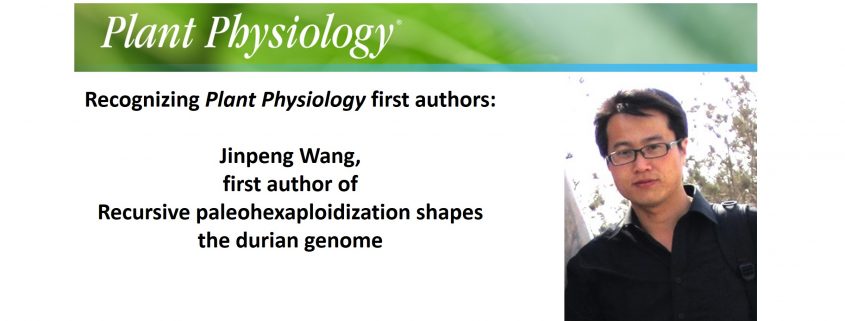Recognizing Plant Physiology first authors: Jinpeng Wang
Jinpeng Wang, first author of Recursive paleohexaploidization shapes the durian genome
Current Position: Associate Professor, Center for Genomics and Computational Biology, and School of Life Sciences, North China University of Science and Technology, Tangshan, China
Education: B.S. in Applied Mathematics, Tangshan Normal University, and M.S. in Genomics and Bioinformatics, North China University of Science and Technology (NCST)
Non-scientific Interests: Jogging, traveling, swimming, music, philosophy, and literature
Brief bio: I got my master’s degree in Genomics and Bioinformatics at the NCST in 2011, and my advisor was Prof. Xiyin Wang. Then I worked as a faculty member in the NCST, and continue to perform research in Prof. Wang’s lab. At present, my main research interests are as follows. Firstly, I am developing new methods and tools to decipher complex genomes. Secondly, I am using bioinformatics tools to analyze the plant genome structure and functional evolution, especially to understand how polyploidization affected the formation and repatterning of plant genomes. Collaborating with colleagues, I contributed to show an overlooked tetraploidization event affected the formation of the ancestral genome of cucurbit plants (Wang et al., 2018); and found that kiwifruit was affected by two sequential likely auto-tetraploidization events (Wang et al., 2018). Thirdly, by inferring gene colinearity between plants, I am performing alignment of multiple plant genomes, aiming at constructing pan-family/genus platforms to aid research efforts by biologists and agronomists. For example, together with colleagues, I developed the Legume Comparative Genomics Database (http://www.legumegrp.org/; (Wang et al., 2017).




